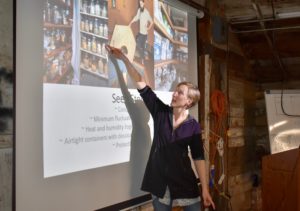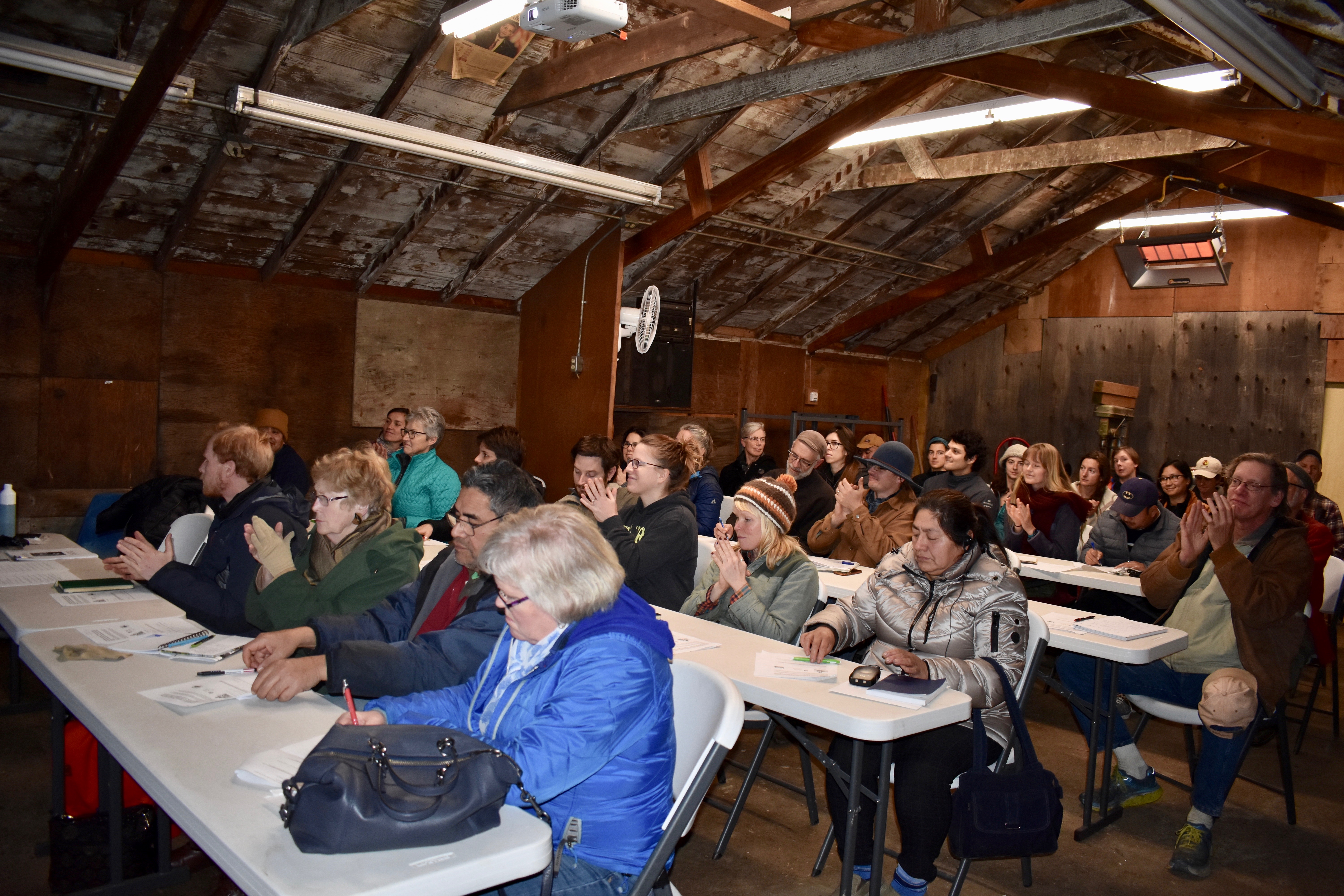
A diverse group of farmers learned key seed skills from Organic Seed Alliance Program Director Micaela Colley at a January workshop hosted at Viva Farms, a nonprofit incubator farm serving limited-resource growers in Skagit County, Washington. With Spanish translation provided by Washington State University, more than 30 participants acquired knowledge on plant reproduction and selection, maturation and harvesting of seed, as well as seed cleaning and storage. OSA also heard from participants working with culturally significant varieties on the challenges they face, and will continue to work with them to adapt heritage cultivars to conditions in the Pacific Northwest.
The workshop is part of an outreach project supported by the New Field Foundation Seed, Soil and Culture Fund to assist indigenous and immigrant growers working to adapt and improve vegetable and grain varieties of cultural significance to their families and communities.
In addition to offering support through workshops and one-on-one consultation, OSA will lead variety trials to identify the best cultivars for continued improvement. During the 2019 growing season, we will trial more than 12 varieties of flour, dent and flint corns, including varieties recommended for adaptation to Pacific Northwest conditions with the goal of identifying varieties for local production that have the eating qualities preferred by our partnering Oaxacan farmers. The first year’s trial will serve as an opportunity to explore the potential of future participatory breeding efforts. We’ll be conducting these trials at OSA’s Research Farm in Chimacum, WA, and on a dozen farms that partner with our research efforts on the Olympic Peninsula, including Viva Farms.
Many thanks to Rob Smith and Katherine Myrvold of Viva Farms for coordinating and hosting the workshop, Kate Smith of WSU for Spanish translation, and the New Field Foundation Seed, Soil and Culture Fund.

